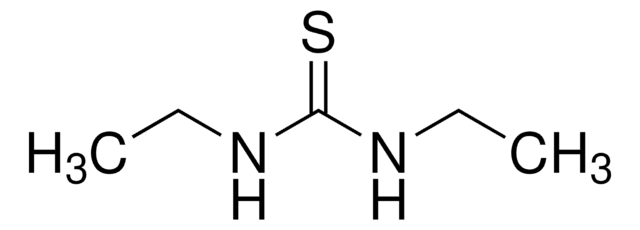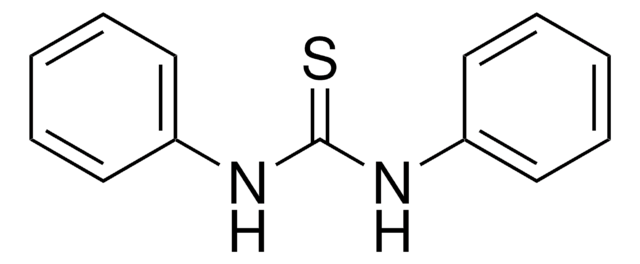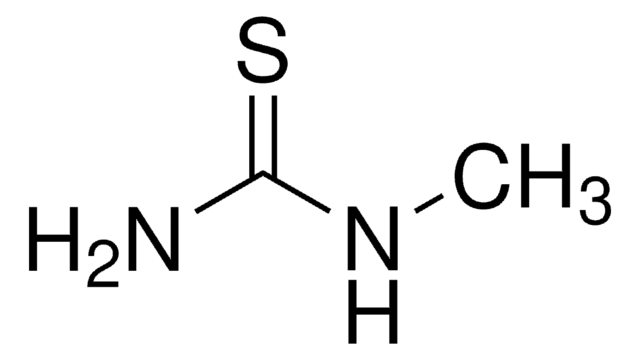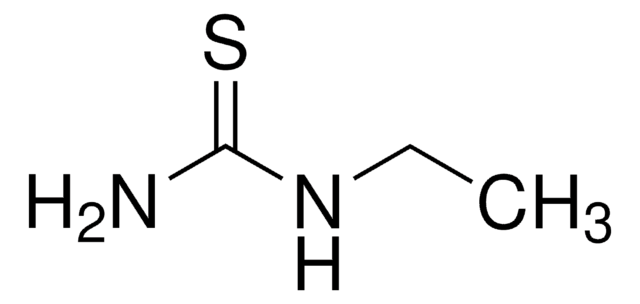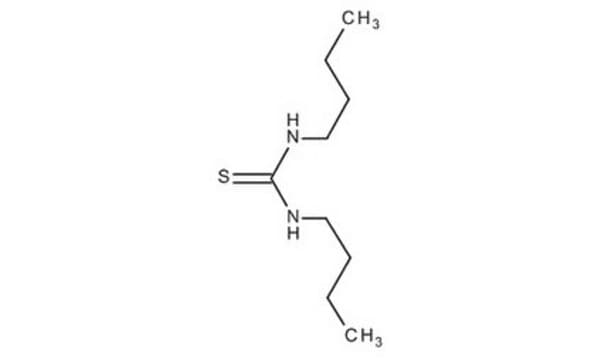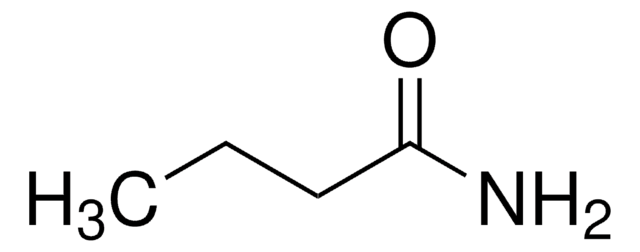All Photos(1)
About This Item
Linear Formula:
CH3(CH2)3NHCSNH(CH2)3CH3
CAS Number:
Molecular Weight:
188.33
Beilstein:
507434
EC Number:
MDL number:
UNSPSC Code:
12352100
PubChem Substance ID:
NACRES:
NA.22
Recommended Products
Quality Level
Assay
97%
form
powder
mp
63-65 °C (lit.)
SMILES string
CCCCNC(=S)NCCCC
InChI
1S/C9H20N2S/c1-3-5-7-10-9(12)11-8-6-4-2/h3-8H2,1-2H3,(H2,10,11,12)
InChI key
KFFQABQEJATQAT-UHFFFAOYSA-N
Gene Information
human ... EPHX2(2053)
mouse ... Ephx2(13850)
Looking for similar products? Visit Product Comparison Guide
Signal Word
Warning
Hazard Statements
Hazard Classifications
Acute Tox. 4 Oral
Storage Class Code
11 - Combustible Solids
WGK
WGK 3
Flash Point(F)
Not applicable
Flash Point(C)
Not applicable
Personal Protective Equipment
dust mask type N95 (US), Eyeshields, Gloves
Choose from one of the most recent versions:
Already Own This Product?
Find documentation for the products that you have recently purchased in the Document Library.
Customers Also Viewed
Occupational airborne allergic contact dermatitis from dibutylthiourea.
L Kanerva et al.
Contact dermatitis, 38(6), 347-348 (1998-08-01)
Erin M Warshaw et al.
Dermatitis : contact, atopic, occupational, drug, 19(4), 190-201 (2008-08-05)
Allergic contact dermatitis from thioureas is uncommon but may result from exposure to rubber, especially neoprene. To (1) describe the population with positive patch-test reactions to mixed dialkyl thioureas (MDTU) (ie, diethylthiourea and dibutylthiourea); (2) determine clinical and occupational relevance
L Kanerva et al.
Contact dermatitis, 10(3), 158-162 (1984-03-01)
A 35-year-old machinist developed hand eczema from contact allergy to dibutylthiourea, a compound found in a paint and glue remover. Light and electron microscopy of his positive patch test was consistent with allergic contact dermatitis, showing Langerhans cell-mononuclear cell contacts
[A case of allergy to dibutylthiourea caused by diver's footgear (author's transl)].
J Foussereau et al.
Dermatosen in Beruf und Umwelt. Occupation and environment, 30(2), 58-59 (1982-01-01)
O Bergendorff et al.
Contact dermatitis, 51(5-6), 273-277 (2004-12-21)
Ethylbutylthiourea (EBTU) is an accelerator used in the production of chloroprene (neoprene) rubber. EBTU occurs in a mixture with diethylthiourea (DETU) and dibutylthiourea (DBTU) in the accelerator. An analytical method originally developed for analysis of zinc dithiocarbamates in rubber has
Our team of scientists has experience in all areas of research including Life Science, Material Science, Chemical Synthesis, Chromatography, Analytical and many others.
Contact Technical Service